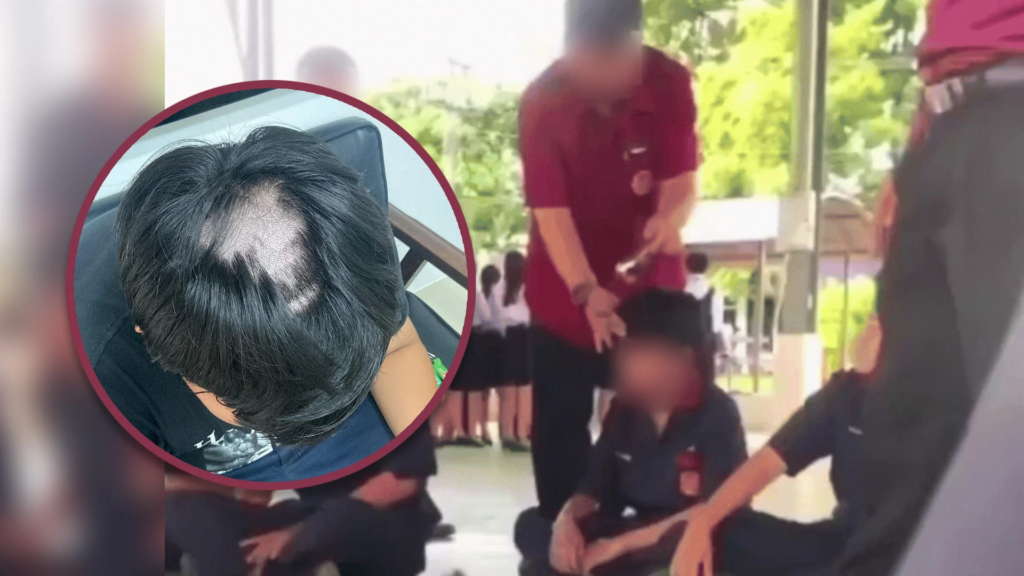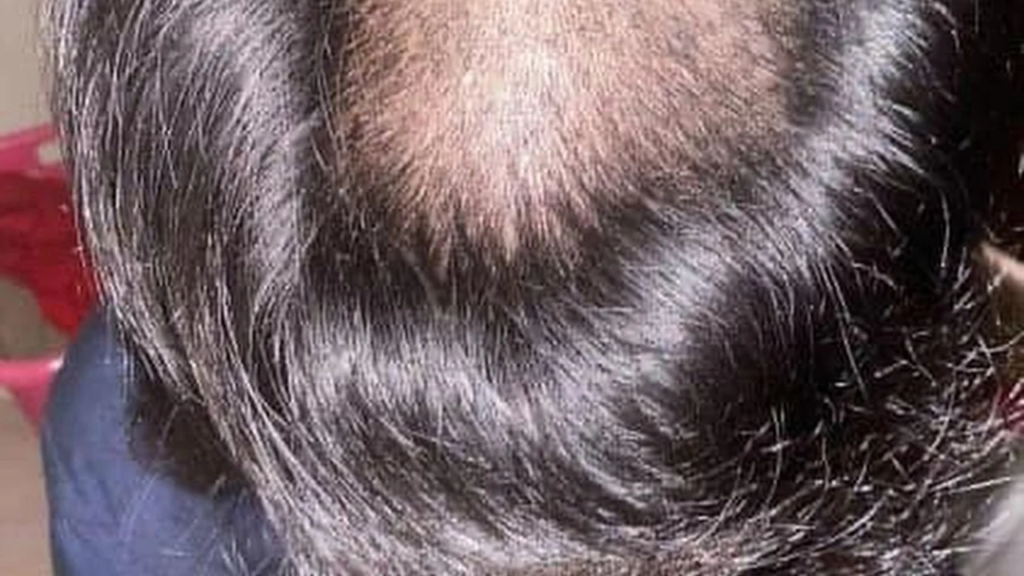Teacher shaves 66 students in a shocking incident that has drawn widespread outrage across Thailand. At Maesod Technical College in Western Thailand, a teacher from the mechanical engineering department took an extreme approach to discipline by shaving bald spots into the heads of 66 students. The reason?
The students were accused of violating the school’s hair length policy. According to reports from Thaich8 News, this severe form of punishment has led to the teacher’s dismissal and has sparked a heated debate on social media, with many expressing concern for the mental and emotional well-being of the students involved.
The Incident: A Drastic Punishment
In disturbing event Teacher shaves 66 students the teacher justified his actions by claiming that the students’ hair lengths exceeded the school’s regulations. The policy, which mandates that students maintain a certain hair length, was allegedly violated by the 66 students.
In response, the teacher chose an extreme method of enforcement, using clippers to shave bald patches into their heads. The shocking revelation that the teacher shaves 66 students as punishment has left many questioning the ethics of such actions in an educational environment.
The students were reportedly left with uneven, patchy hair, which has not only affected their appearance but also subjected them to public humiliation. The teacher’s actions were quickly condemned by the school administration, who deemed the punishment inappropriate and excessive.
This led to the teacher’s immediate termination, signaling the administration’s stance against such extreme disciplinary measures.
Allegations of Intimidation and Social Media Backlash
What makes this case even more alarming is the claim that the teacher shaves 66 students while allegedly using a firearm to intimidate them during the incident.
This further escalates the gravity of the situation and raises questions about the safety and emotional security of students in the school environment. The use of such intimidation tactics by an educator has been met with severe backlash from both the public and the authorities.
Social media quickly became a platform for people to express their outrage. The incident caught the attention of many, including a well-known Thai barber, “Choppy Champ,” who took to Facebook to criticize the teacher’s actions.

Choppy Champ expressed his disgust at the punishment, pointing out the detrimental impact on the students’ appearance and self-esteem.
In an act of kindness, the barber offered free haircuts to the affected students in an effort to restore their dignity. He also urged the teacher to reflect on his methods and to consider the emotional consequences of such harsh disciplinary actions.
The social media uproar surrounding the case was swift and loud. Many users voiced their concern for the students, emphasizing how such punishment could have lasting negative effects on their mental health.
One commenter stated, “This teacher lacks morality. The students will be mocked by others for having the bald spots.” Another user shared their own traumatic experience with a similar punishment, highlighting the emotional scars such incidents can leave on young individuals.
Legal and Educational Implications
As the situation unfolded, school authorities advised the students to consider taking legal action against the teacher. While no formal legal steps have been reported yet, the possibility remains that this case could escalate into a legal battle, particularly if it is proven that the teacher’s actions were not only unethical but also violated laws governing the treatment of students.
This incident raises broader questions about the role of punishment in educational settings. While schools have policies in place to maintain discipline, the line between appropriate enforcement and abusive behavior can sometimes be blurred.
In this case, the fact that the teacher shaves 66 students as a form of punishment crosses that line, sparking debate on how schools should address violations of rules while ensuring the dignity and well-being of their students.
Many critics have pointed out that there are more constructive ways to address disciplinary issues without resorting to physical punishment or public humiliation. Educational experts argue that such extreme measures can harm students’ self-esteem and create an atmosphere of fear and resentment, rather than encouraging positive behavior.
In light of this incident, there have been calls for schools in Thailand and beyond to reconsider their disciplinary policies and ensure that any punishment is fair, respectful, and conducive to the students’ overall development.

The Importance of Student Well-being
The fact that a teacher shaves 66 students has opened up a wider conversation about the importance of considering students’ mental and emotional well-being in educational environments.
Public humiliation, such as shaving a student’s head in front of their peers, can have long-lasting psychological impacts, potentially leading to issues like anxiety, depression, and a negative self-image. In the aftermath of this incident, many people have highlighted the need for teachers to be trained in more compassionate and effective disciplinary methods.
Barber Choppy Champ’s intervention, offering free haircuts to the students, represents a positive response to a deeply troubling situation.
His gesture not only helped the students regain their appearance but also underscored the importance of treating young people with kindness and understanding, even when they make mistakes.
He also encouraged the teacher involved to reflect on how disciplinary measures should prioritize the students’ emotional and psychological health.
The incident also reminds educators worldwide of their responsibility to foster a safe, supportive environment for their students. Discipline is necessary, but it should never come at the cost of a student’s dignity.
The outpouring of public support for the affected students and the calls for justice indicate a growing recognition that such incidents have no place in modern education.
The case in Thailand, where a teacher shaves 66 students as a form of punishment, serves as a stark reminder of the need for educational institutions to adopt disciplinary measures that prioritize the well-being of students.
The immediate dismissal of the teacher and the widespread condemnation of his actions reflect a growing awareness that extreme and humiliating punishments have no place in schools.
As Thailand and the rest of the world continue to grapple with how to best manage student discipline, one thing is clear: students deserve respect, and their emotional well-being must always be a top priority.

